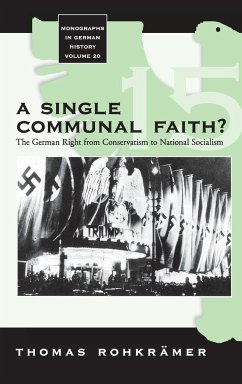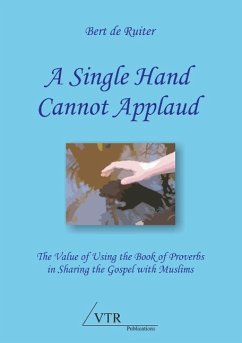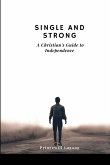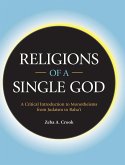How could the Right transform itself from a politics of the nobility to a fatally attractive option for people from all parts of society? How could the Nazis gain a good third of the votes in free elections and remain popular far into their rule? A number of studies from the 1960s have dealt with the issue, in particular the works by George Mosse and Fritz Stern. Their central arguments are still challenging, but a large number of more specific studies allow today for a much more complex argument, which also takes account of changes in our understanding of German history in general. This book shows that between 1800 and 1945 the fundamentalist desire for a single communal faith played a crucial role in the radicalization of Germany's political Right. A nationalist faith could gain wider appeal, because people were searching for a sense of identity and belonging, a mental map for the modern world and metaphysical security.
Hinweis: Dieser Artikel kann nur an eine deutsche Lieferadresse ausgeliefert werden.
Hinweis: Dieser Artikel kann nur an eine deutsche Lieferadresse ausgeliefert werden.








